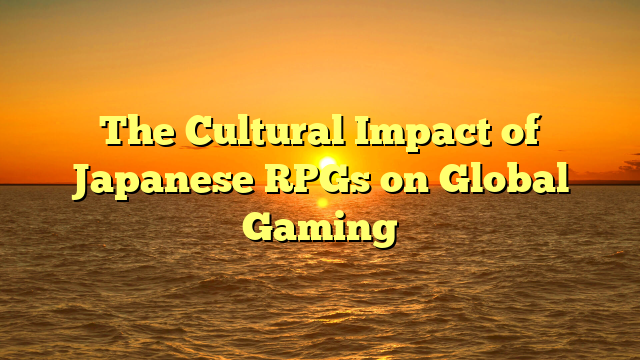Japanese role-playing games (JRPGs) have had a profound and lasting influence on global gaming culture. Since the 1980s, JRPGs have been defined by raja toto88 their strong storytelling, memorable characters, and distinct aesthetic sensibilities. But their cultural impact truly exploded in the 1990s, when advancements in hardware allowed developers in Japan to deliver emotional, cinematic experiences that captivated audiences worldwide.
One of the most defining cultural moments in gaming history was the release of Final Fantasy VII (1997). With its 3D graphics, pre-rendered backgrounds, and ambitious storyline, the game reached millions of players who had never experienced a JRPG before. It showcased how video games could be more than entertainment—they could also serve as vehicles for dramatic storytelling, complex themes, and emotional depth. FFVII’s success helped solidify PlayStation as a global platform and opened the door for many Japanese developers to reach Western audiences.
JRPGs also shaped gaming through distinctive artistic and narrative traditions. Many titles embraced stylized character designs, elaborate combat animations, and melodramatic plots inspired by anime storytelling. Games like Chrono Trigger, Suikoden II, and Xenogears demonstrated that JRPGs could tackle philosophical themes, political conflict, and time-travel paradoxes while maintaining accessibility and charm.
Music has also played a significant cultural role. Composers such as Nobuo Uematsu and Yasunori Mitsuda created some of the most iconic soundtracks in gaming history, influencing not only game music but also orchestral concerts and fan communities.
Moreover, JRPGs helped establish a global fan culture that extended well beyond gaming. Cosplay, fan fiction, fan art, and online communities grew rapidly around series like Final Fantasy, Tales, Persona, and Dragon Quest. These communities helped bridge cultural gaps, fostering appreciation for Japanese art and storytelling traditions.
Through their emotional narratives, distinctive art styles, and unforgettable characters, JRPGs have become a cultural phenomenon. They not only shaped gaming trends but also influenced animation, music, and global fandom, leaving an impact that remains strong decades later.
